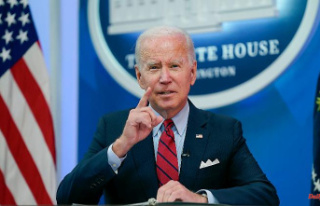The harvests are underway, and the first production estimates emerge in the midst Russian-Ukrainian conflict. "The yield of soft grain in France should reach 69.5 quintals/ha in 2022, which is 3% less than the average over the past 10 years," announces Intercereales with Arvalis – Institut du Vegetal, an interprofessional of the sector.
A quality production that has an average protein content of 11.6% - this is in line with the ten year average.
The harvest is still plentiful, but there is "unprecedented heterogeneity" in the harvest across the territory, within a particular region, and even within the same farm.
The 2021/2022 campaign was difficult for producers due to extreme climatic hazards. The French soft wheat harvest is expected to be slightly lower and is characterised by an unprecedented level of heterogeneity.
Jean-Francois Loiseau is President of Intercereales
It was mainly the heat wave and drought that were in question, with occasional frosty and hail episodes.
Intercereales explains that the wheats were established and developed during the first phase. This was due to the mild autumn and winter. This campaign's highlight is the drought that lasted from spring to the end. It has strong effects on ear density, particularly in the surface soils. The radiation's beneficial effects on the fertility of ears made it possible to compensate for the negative consequences of the elongation. This was especially true in deep soils. Francois Laurent (research and development director, Arvalis – Institut du Vegetal), explains that the return of the rains in June allowed for more favorable conditions for grain filling to be found in the later areas.
In a context [...] marred by war in Ukraine, droughts [...], French Wheat is available to meet all our domestic needs and will continue its role internationally.
Jean-Francois Loiseau
The sector faces the challenges of global warming and is counting on "NBT", which is new plant breeding techniques. "This is for us a strong source of hope. We must respond to environmental, social and production issues... innovation is one way to do this. It is our hope that innovation will be available to help us choose varieties that are more adaptable to the challenges we face. You might find varieties that are more resistant and resilient to drought in areas that are extremely exposed.












